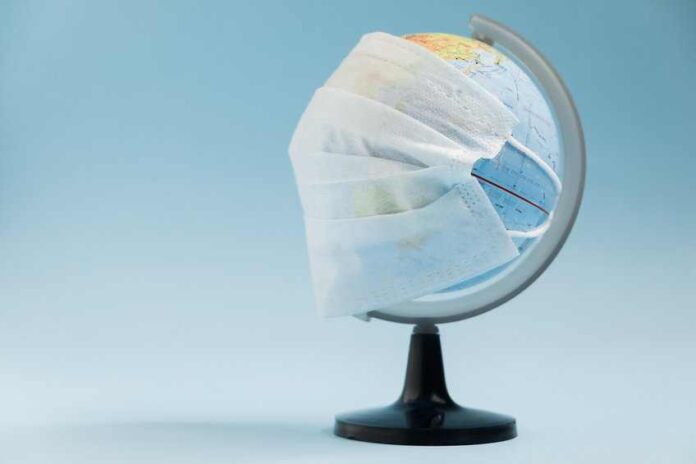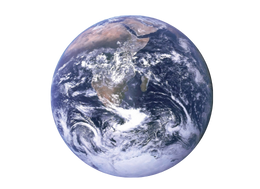The pandemic has been all about globalization.
Global corporations and institutions have managed the response. National governments have largely been following their lead.
During the last few years, there has been a growing sense of global citizenship. Certainly, all media channels promote global content.
There are two sides to this sense of global belonging: firstly, we feel a sense of kinship with people everywhere, and secondly, we are all aware that global problems need solving.
Up until recently, it was quite natural to suppose that global governance or regulatory bodies were needed to come up with solutions for these problems.
Globalization Has Created a Lawless World
But we are not seeing global institutions solving problems. In fact, we fear they are creating more problems. The WHO, WEF, UN, etc., along with a massive number of mega-corporations, NGOs, and media conglomerates, do not seem to be doing a very good job.
The pandemic has given us an object lesson in the lawless expanse of globalization. A group of biotechnologists allied with big pharma giants was engaged in creating deadly diseases in carefully hidden laboratories.
Their stated purpose was to discover cures for illnesses that possibly might arise in the future. In the event, according to many top scientists, they inevitably released a disease and then profited from a cleverly marketed but ineffective ‘cure.’
Let’s not kid ourselves; such business models are two a penny in a globalized world. For years modern medicine has been pushing drugs whose long-term use results in chronic illness.
The time-honoured and humbling truth remains that the accumulation of administrative and economic power corrupts those who wield it.
Or is it just that we do not know how to administer empires?
Centralization and Globalisation are Gathering Power to the Centre
Centralization and globalization are evolving toward tyranny. Centralized governance becomes increasingly separated from local communities. Sitting in remote parliaments, legislators are often out of touch with the needs of the local communities they represent.
Moreover, party politics enforce a uniformity of policy which renders most representatives not representing their constituents. A fact that became painfully obvious during the pandemic.
Especially during the pandemic and even before, centralization has taken on an extended dimension—highly restrictive control over individual options and circumstances.
People in Birmingham are far more likely to know what is needed in their city than politicians in Westminster or global moguls in Davos, but they are not allowed to enact needed measures.
When we critically review the strictures and decisions of centralized governments, they appear arbitrary or discriminative in their effects.
Thus, Jacinda Ardern has announced that wearing masks will be required in New Zealand despite evidence that their long-term use is unhealthy.
She is also keeping mandate laws in her back pocket, ready for the time they will be used again.
We could say that some governments are behaving like coercive and abusive parents while we, their virtually helpless children, are trapped by their incompetence and gaslighting.
Time for More Representative Political Institutions
There may be new political models that offer hope. As a physicist, I imagine our administrative systems can be remodelled along the lines of physical laws.
Natural laws like gravity, electromagnetism, etc, are universal, and true everywhere, but they allow for local diversity, adaptation, and evolution.
Each local area succeeds in promoting suitably stable natural ecosystems whilst continuously connected to the universal laws.
If we began designing politics from scratch in the modern era, we might decide that elected representatives should sit with advisors in their local area and connect remotely with representatives from other areas to make national decisions.
Each local representative could act as an independent rather than a cog in the giant party wheel.
So goodbye to party whips and hello to independent thinking. A crucial part of such a system would be the dictum that anything that can be decided locally should be decided locally.
Going a step further, there is no doubt that one size fits all medical and educational straight jackets have not supported the best possible outcomes.
Educational attainment is slipping everywhere, and life expectancy has started to decline. Could local diversity be further fostered if individuals could choose to spend their medical and educational dollars through, for example, a voucher system?
Local Decision-making Can be Linked to Needed Global Action
For the moment, we can call the flag bearer of this new political system—The Local Party. The Local Party could field candidates who subscribe to global policies, which would play a role similar to universal physical laws.
An example of this might be—all new energy initiatives must be based on renewable solar, wave, or wind power. Another prescriptive policy might be a pause in biotechnology experimentation.
Other global policies like this would address problems of pollution, climate change, weapons proliferation, etc., uniformly and effectively.
In fact, The Local Party can be a globally instituted concept. Elected officials in Nantes, Liverpool, Bern, St Petersburg, and so on could share globally sustainable objectives without compromising national and local integrity.
Exactly as universal physical laws do not compromise but actually promote local diversity.
Some of these principles and human rights can be guaranteed within a constitutional framework.
A Renaissance in the Broad Scope of Interdisciplinary Thinking
You are going to tell me that all systems will be subject to corruption. An old story is told of the Mughal Emperor Akbar; he sentenced a cheating official to sit on the seashore and note each wave in a book.
Encouraged to check up on him, Akbar and his chief advisor Birbal sailed close to the shore in disguise, whereupon the corrupt official rose up and accused their ship of disturbing the waves.
He threatened to report them to Akbar himself and asked for a bribe.
Akbar is one of many historical figures who were so-called philosopher kings.
Their modern-day equivalent is found in such national heroes as Mandela and Gandhi. Did their success lie in having a king’s power or being a philosopher? No doubt, their love of wisdom was crucial.
The pandemic response has been determined by people so specialized that the broader implications of their actions escaped their consciousness.
Contemplation and study are not noted accomplishments of politicians; perhaps they should be.
Certainly, we now know that our consciousness plays a crucial role in physical law, as revealed by measurement theory.
Perhaps a more profound grasp of the interdisciplinary philosophical and perceptual fundamentals of knowledge and morality should be an aim of education in general and politicians in particular.
Global Corporations are Predatory of National Interests
One conclusion we can take home from the pandemic—our present approach to global problems is not working and has to evolve.
The uniformity we are increasingly seeing among cities across the world includes branded retail outlets rather than mum-and-dad stores and creative start-ups.
They are selling toxic processed foods and consumer items produced in exploitative factories. Cities also share a uniformity of pollution and poverty.
Global corporations and institutions are usurping national sovereignty in an act of economic invasion.
They are essentially predatory of national, local, and individual interests. They aim to isolate themselves from contributing to local and national taxation.
In contrast, most scientifically valid solutions to global problems require local actions such as, for example, the harvesting of solar power on every roof of every home, the sorting and recycling of waste, or the increased use of non-polluting materials. These solutions require local administration and education.
One thing is for sure, the world we live in is neither safe nor enjoyable for the majority. This is indicative of a failure in politics, education, medicine, and economics.
Doing nothing about it is not an option. Local people in their own locality, who are knowledgeable about verified local solutions to global problems, might better understand how to act effectively, and web-based technology could be harnessed to provide the speed of decision-making, adequate oversight, and higher levels of democratic participation.
This article was originally published in the Hatchard Report: What Can We Take Home From The Politics of The Pandemic.
Guy Hatchard, Ph.D., was formerly a senior manager at Genetic ID, a food testing and certification company (now known as FoodChain ID).
Guy is the author of Your DNA Diet: Leveraging the Power of Consciousness To Heal Ourselves and Our World. An Ayurvedic Blueprint For Health and Wellness.




